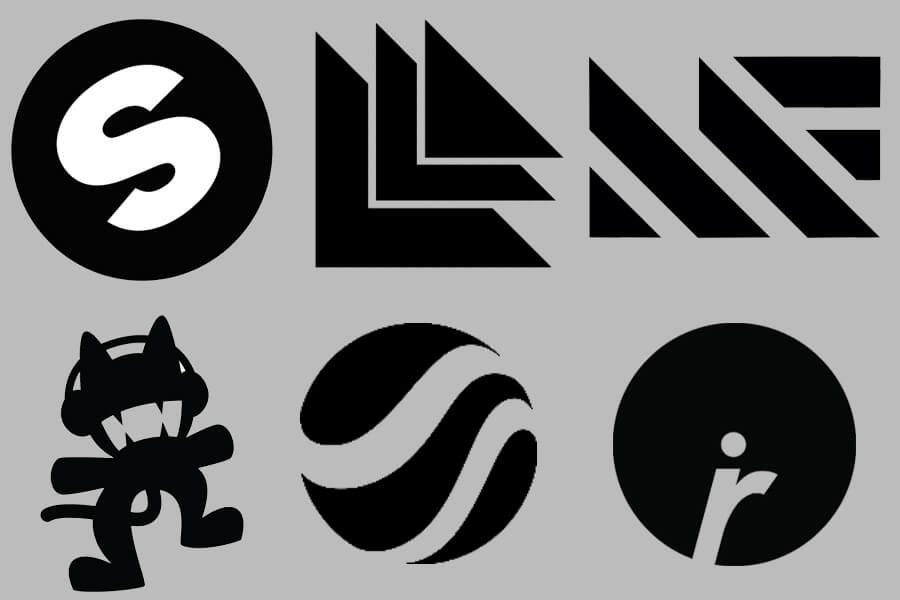- ,
- , Producer Tips
How to Sign With a Record Label

Many musicians and DJs like you are making incredible music all the time, but they often have a problem getting their tracks heard. It’s tough to get yourself out there into the ears of the broader masses without the help of record labels.
A record label can help you, first and foremost, with financial assistance. The deal is always simple; the label provides the money, you make the music, and later on, you both profit.
However, that’s not the problem here; the problem is getting that support. Most record labels want to sign a deal with established acts, which are almost certain to attract a massive fan base.
But how can you get a record deal now when you’re still not well-established?
That’s precisely where this guide will come in handy. We’ll make sure to provide you with tips on how to get a deal as soon as possible, but we’ll also give you the answers to a lot of burning questions most artists like you have when it comes to record labels.
Create the Best Demo or Album You Can
Naturally, the first step you need to take in your quest to get signed with a record label is to develop your music. But, unfortunately, it’s not always possible to just be yourself and create what you want to create — you have to do more.
You need to:
- Study your competition to see what they have done that enabled them to get signed.
- Be professional and create music that’s profitable for many top labels and, of course, you. In other words, your music has to be your life, and it has to be polished and close to perfection.
- Practice all the time if you want to reach a level only true professionals and successful artists have.
- Find a balance between what you want to make and what’s marketable. You might think that your drops will blow people’s minds, but it’s not necessarily so. You have to create a banger that will get many people excited, even the people you feel are a terrible audience, and don’t get your music to begin with.
All in all, the goal is not to create a great track — but an outstanding one. As you can expect, that requires some professional polishing as well.
Polish Your Album or Demo
Mixing and mastering are your friends here. They will help you polish a track and turn it into something that sounds incredible on all devices and platforms.
If you are not good at producing and getting your music ready for the wider masses, you can always hire a professional. However, if that’s not something you want to do, you’ll have to learn how mixing and mastering work and how to do it on your own.
At some point in the process, you should send the demo or the whole album to many people and ask for their feedback. You can send it to your friends, but you should also send it to people who you expect to be harsh critics of your work. You can even ask for feedback on forums and numerous online communities.
After that, you can focus on improving the things that several people stated are not good. But don’t go overboard by correcting something a single person didn’t like — always focus on the bigger stuff many have criticized.
In the end, remember that you should never send a demo that’s not release-ready. Even though you won’t be releasing it any time soon, it needs to be ready as that’s what record labels want to hear. They want to hear and possibly support high-quality music, not poorly mixed tunes with low production value.
Have a Good Online Presentation
When your music is ready, you need to prepare your presentation. In other words, you need to be able to leave a great first impression on the record labels.

In most cases, when you pitch your tracks to record labels, those that end up listening to it will only catch a glimpse of it. If they don’t do that either, they’ll likely only look you up online.
So, to leave a striking impression on them, you need to focus on the following:
- Get your socials well organized and optimized. Create profiles on several important platforms and link them all together. Focus on Soundcloud, YouTube, Facebook, and Twitter. And create custom URLs for each profile with your name in them.
- Create and optimize your own website. Buy a domain and create a website if you don’t already have one. You can do it all on your own via WordPress, or you can simply use a great website builder for musicians that will let you create a great website in no time.
- Develop your brand. You need to have a well-established brand online, and you can do that by having decent protographs, artwork, and a logo. You can find a friend to do it or pay someone after finding them on sites like 99designs and Crowdspring.
Create a Sizable Fanbase
If you don’t have a decent fanbase, you need to build it before reaching out to a label.
Yes, a signed deal will indeed help you get a bigger fanbase, but you still need to attract people on your own, for starters.
No matter what you do to get the record to become interested in you, they won’t be unless you have a decent number of fans. Otherwise, everyone would be able to get a deal.
So, this is what you should do:
- Play a lot of shows locally, be it online or in-person
- Put your songs on YouTube, Soundcloud, and wherever else you can
- Improve your social network presence
- Create merch if you have the funds for it
The bigger the fanbase you garner with these methods, the bigger the chances that a record label will take you seriously once you reach out.
Build Connections First
As is the case with many industries, it’s all about who you know. This is very true in the music industry, which is why you’ll have to build connections before you try to sign up with a record label.
Thankfully, there are a lot of things you can do to make some important connections:
- Visit industry events whenever you can
- Go to other shows
- Go to places and websites where music business people and other musicians like to meet
- Directly interact with people from record labels and other vital organizations
The goal is to get acquainted with as many people in the industry as possible and build relationships with them in whichever way you can. You never know which acquaintance will be able to help you out later. Some might end up connecting you with decision-makers from labels, or they might even end up being the decision-makers themselves.
Naturally, this is a long-term process that has to start months before you start reaching out to record labels, so bear that in mind before you do anything.
Complete the Necessary Research
Once you decide it’s time to start reaching out — don’t! It’s not yet time unless you’ve done your research on the record labels you are reaching out to.
Start by creating a spreadsheet for gathering all the essential data, most notably contact info. You can even use the spreadsheet to include the requirements labels often have for submitting music.
Make Sure You Are Relevant to the Record Label
There are plenty of record labels out there, many of which are considered outstanding by countless musicians. However, that doesn’t mean you need to reach out to all of them.
Not every label will be interested in your style of music. Some labels don’t work with artists with your style, and some do — it’s just the way things are.
That’s why you need to make sure you check what kinds of musicians they support during your research. This should also be the first thing you research, so you don’t waste time looking up labels that won’t be interested in what you have to offer.
Think Like a Record Label
It would be good if you could put yourself in the shoes of the record label. If you think like them, you’ll have an easier time determining whether or not you have a shot.
The record label is a business, and as such, it’s all about making a profit. So think about the ways you can help them make money and then improve your initial pitch based on what you’ve realized.
Besides that, make sure you are offering something that has the potential to be a hit, or in other words, something that’s different from the majority of tracks out there. This is important because labels are looking for hits. Plus, they get dozens of demos every day, if not more, and they’ll quickly get rid of anything that isn’t unique enough.
Start Sending Your Demos
Now is finally the time to start sending out your demos! Start small and send messages to only a few labels at a time. Soon after, increase the number of messages you’re sending, but don’t send too many at once as you want each label to think they are the only ones you’re considering.
Then just keep sending them, and don’t be surprised if the majority refuses you or downright ghosts you. All of that’s normal and expected, and it shouldn’t discourage you.
However, make sure you follow up with each one if they don’t respond. You can follow up with a different track as well. If they don’t respond again, send one last email, and that’s it. After that, you can give up on that particular label.
Create a template for these messages but always make sure you personalize each one so it’s tailored to the recipient.
These are all cold-emailing techniques that can work in your case, even though they are primarily used by sales departments of countless companies.
The Dos and Don’t of Pitching to Record Labels
Each record label has its own rules for submitting music, but many of these rules are the same. So, here are the most important dos and don’ts you need to follow if you want to be taken seriously:
- Make the whole process easy for the label. Be precise and persistent in your message (no long emails!) and make the entire process easy for them.
- Don’t send your demo as an attached file in the email. People hate that as audio files take up space. Instead, simply send a link to your SoundCloud stream, Dropbox file, or wherever you’ve uploaded your track.
- Create clear file names and proper ID3 tags. This will ensure your emails are not lost and are easy to find.
- Don’t use copyrighted material in your tracks. No self-respecting label will tolerate this as they are not interested in spending time clearing your tracks to avoid lawsuits in the future.
- Test out every link you’re sending. Use incognito mode, so you know it’s working properly.
- Don’t send more than three tracks. Limit yourself to three or preferably fewer tracks in your initial message, as most labels don’t want to waste too much time with every submission.
What Are Some of the Biggest Record Labels You Need to Consider?
Let’s take a look at some great examples of high-quality labels that are known to accept up-and-coming musicians like you:
- Horus Music
- Babygrande Records
- Third Man Records
- Aloaded
- AWAL
- Carpark Records
- OWSLA
- Glassnote Records
- Musical Freedom
- Revealed Recordings
- Island Records
- Victory Records
- Stones Throw Records
- Captured Tracks
- Atlantic Records
- Blue Note Records
- BMG Rights Management
Naturally, we can’t forget the big three of the industry that also own a lot of smaller subsidiary labels you’ll likely be paired with eventually:
Can You Ever Be Certain if You’re Ready to Sign With a Label?
Understandably, it can be hard to know for certain if you’re ready to start seeking out deals and contacting record labels. As you’ve already seen, there are so many things you need to do in advance for your music to have a shot.
If you end up doing everything we suggest and you’re still not ready to start reaching out, reach out to us instead. We can help you understand if you’re ready and get you the deal you’re craving.
The Pros and Cons of Signing with a Record Label

We’ve spent the whole guide talking about what you need to do to get signed with a label. But that still doesn’t mean you need to do it. You can always stay independent. If you’re having second thoughts, it’s worth considering the main pros and cons of signing with a record label.
Pros
- A large budget and a lot of resources you need
- An extensive network and connections
- You benefit from the reputation and influence the label has
- A complete marketing strategy you don’t have to worry about
- Potential to reach a much bigger audience
- You get to focus only on your music
Cons
- Limited creative control (depends on the label)
- Lowered profits as the label gets the biggest portion
- Record label owns the master rights to your music
Frequently Asked Questions
Do you have to pay to get signed to a record label?
No, never. If a record label asks money from you to get you signed, then something fishy is going on there, and you shouldn’t sign their contract. All record labels pay artists, not the other way around.
How old do you have to be to sign with a record label?
You can get signed at any age, but if you are a minor, your parent or legal guardian must approve and sign the deal for you.
How much money do you get from a record deal?
It depends on various factors that include the label you find, how much they invest in the types of music you create, the way the negotiations have gone, and more. However, in general, most good record labels will invest anywhere between $500,000 and $2,000.000.
Naturally, a lot of this money will go on recording, video production, marketing, promotion, etc. As for the advances artists tend to get, they range anywhere from $50,000 to $350,000.
Do record labels pay for tours?
It depends on the contract, but in many cases, touring is left to the artist. This means that you’ll have to pay for your tours, but you’ll also get to keep all the money you make from them. Most of the heavy work is thankfully done by the booking agents, promoters, and event organizers.
What percentage does a record label take?
As always, the exact percentage depends on the deal, but most record labels take around 80% of the royalties while artists are left with 20%. Bigger stars manage to negotiate better deals and get as much as half of the royalties, but everyone else can’t hope to get much more than 20% and, in many cases, only 10-15%.
It’s worth noting that it’s often different with indie labels, and in these cases, the earnings are usually split 50/50.